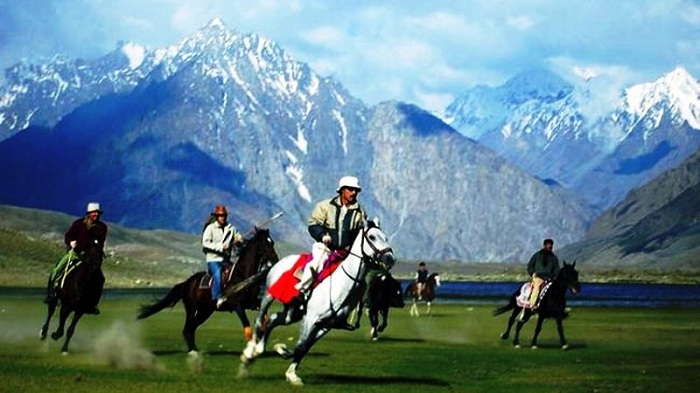In recent years, Pakistan has witnessed a remarkable resurgence of traditional sports, with kabaddi leading the charge. As the country’s sporting landscape diversifies, there is an increasing interest in various games that reflect its rich cultural heritage. This blog will explore the rise of kabaddi and other traditional sports in Pakistan, examining their significance, growing popularity, and contribution to a more vibrant sporting culture.
The Resurgence of Kabaddi
Kabaddi, a traditional contact sport with roots in South Asia, has seen a revival in Pakistan over the past decade. Historically, kabaddi was played mostly in rural areas, serving as a source of entertainment and a test of strength and strategy. With the advent of professional leagues, such as the Pakistan Kabaddi League, the sport has gained renewed attention, attracting players and fans alike.
Professionalization and Growth
The establishment of professional kabaddi leagues has been pivotal in bringing the sport to the forefront. These leagues not only provide a platform for players to showcase their talent but also contribute to the sport’s commercial viability. The involvement of sponsors, media coverage, and organized tournaments has created a buzz around kabaddi, making it appealing to a younger audience.
Moreover, kabaddi’s simplicity and minimal equipment requirements make it accessible to a wide range of players. Communities can easily organize matches in local fields, fostering participation and engagement at the grassroots level. This grassroots involvement is crucial for the sport’s sustainability and growth.
Cultural Significance
Kabaddi is more than just a sport; it embodies cultural values and traditions. It is often played during local festivals and events, serving as a means of social interaction and community bonding. The resurgence of kabaddi has rekindled interest in cultural heritage, allowing younger generations to connect with their roots while engaging in physical activity.
Other Traditional Sports Gaining Popularity
While kabaddi is leading the revival of traditional sports, other games are also experiencing a renaissance. Sports such as wrestling (kushti), bull racing, and traditional archery have found their way back into the public consciousness, thanks to increased awareness and efforts by local communities.
Wrestling (Kushti)
Wrestling has a long-standing history in Pakistan, especially in regions like Punjab and Sindh. Traditionally, it was a significant part of local festivals and gatherings. The sport has seen a resurgence, with local wrestling tournaments gaining popularity. These events not only showcase athletic prowess but also promote cultural identity and community pride.
Bull Racing
Bull racing, another traditional sport, is particularly popular in rural areas. This thrilling event draws large crowds and showcases the strength of both the animals and their handlers. The growing interest in bull racing reflects a desire to preserve cultural practices while providing entertainment and excitement.
Traditional Archery
Archery has also begun to see a revival, with various local clubs and competitions emerging. The sport not only emphasizes skill and precision but also connects players to centuries-old practices. As more young people take up archery, it enhances community engagement and promotes physical fitness.
Contributing to a Diverse Sporting Culture
The rise of kabaddi and other traditional sports contributes significantly to Pakistan’s diverse sporting culture. As the country moves beyond its historical focus on cricket and hockey, embracing a variety of sports promotes inclusivity and broadens the definition of athletic achievement.
Encouraging Physical Activity
The resurgence of traditional sports plays a crucial role in promoting physical activity, particularly among youth. In an age where sedentary lifestyles are becoming the norm, these sports encourage young people to engage in physical challenges, fostering a culture of health and wellness. Schools and community organizations are increasingly recognizing the importance of including traditional sports in their physical education programs, ensuring that students have access to a variety of sporting options.
Building Community and Identity
Traditional sports serve as a platform for community engagement, allowing people to come together, celebrate, and forge strong bonds. They provide an opportunity for cultural expression and pride, helping to maintain local traditions in a rapidly changing world. Events centered around these sports often attract families and communities, reinforcing social ties and a sense of belonging.
Potential for International Recognition
As traditional sports gain popularity domestically, there is potential for international recognition. Events like the Kabaddi World Cup showcase Pakistan’s talent on a global stage, attracting attention and sparking interest in traditional games worldwide. This international exposure can lead to increased investment, sponsorship, and opportunities for Pakistani athletes.
Challenges and Opportunities
Despite the growing interest in traditional sports, challenges remain. Limited funding, inadequate infrastructure, and a lack of professional coaching can hinder their development. To overcome these obstacles, collaboration between government bodies, sports federations, and local communities is essential. Investment in facilities, training programs, and awareness campaigns can help nurture talent and elevate these sports to new heights.
Conclusion – Sports in Pakistan
The role of Sports in Pakistan is vital for promoting physical fitness, national pride, and social cohesion. Engaging in Sports in Pakistan helps nurture talent, develop teamwork, and build discipline among youth, creating a strong foundation for future athletes. The diversity of Sports in Pakistan—from cricket and hockey to squash and athletics—reflects the nation’s rich sporting culture and competitive spirit.
Promoting Sports in Pakistan ensures that talented individuals receive the recognition, training, and resources they need to excel nationally and internationally. Investing in Sports in Pakistan also strengthens community participation, encourages healthy lifestyles, and inspires younger generations to pursue careers in athletics. The development of Sports in Pakistan aligns with the vision of a Mazboot Pakistan, where youth engagement, talent cultivation, and national achievements go hand in hand to enhance social and economic progress.
In conclusion, Sports in Pakistan are more than just games—they are a platform for nurturing talent, fostering unity, and elevating the nation’s global presence. By advancing Sports in Pakistan, Pakistan moves toward a Mazboot Pakistan, where athletic excellence, healthy communities, and national pride contribute to a stronger, more resilient, and internationally recognized country.

